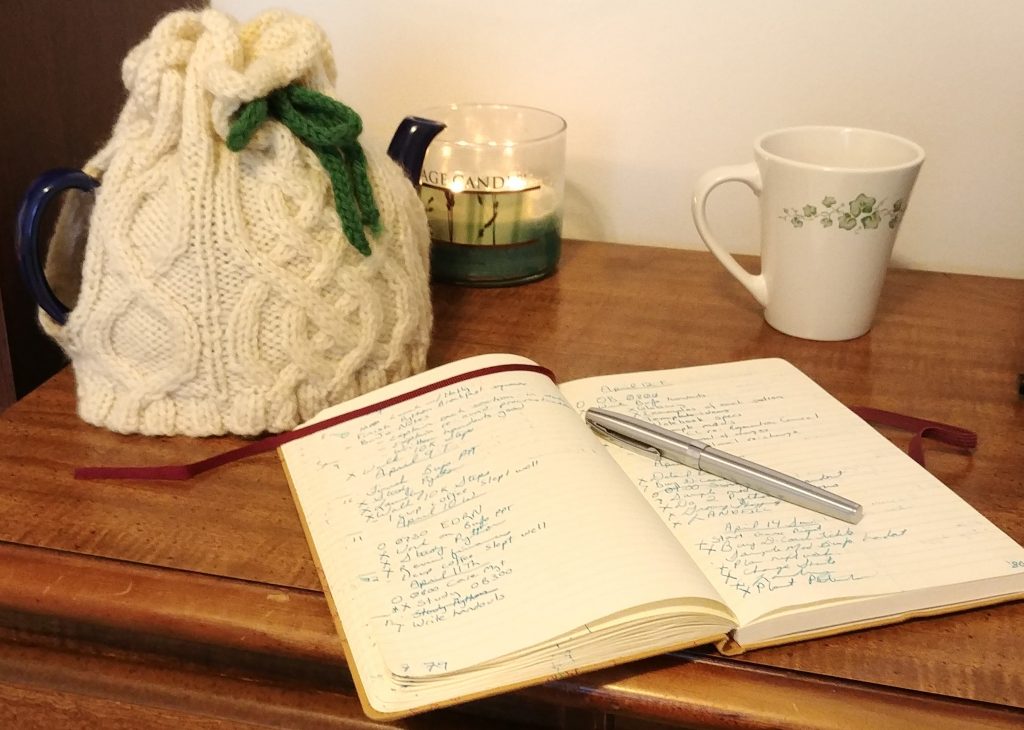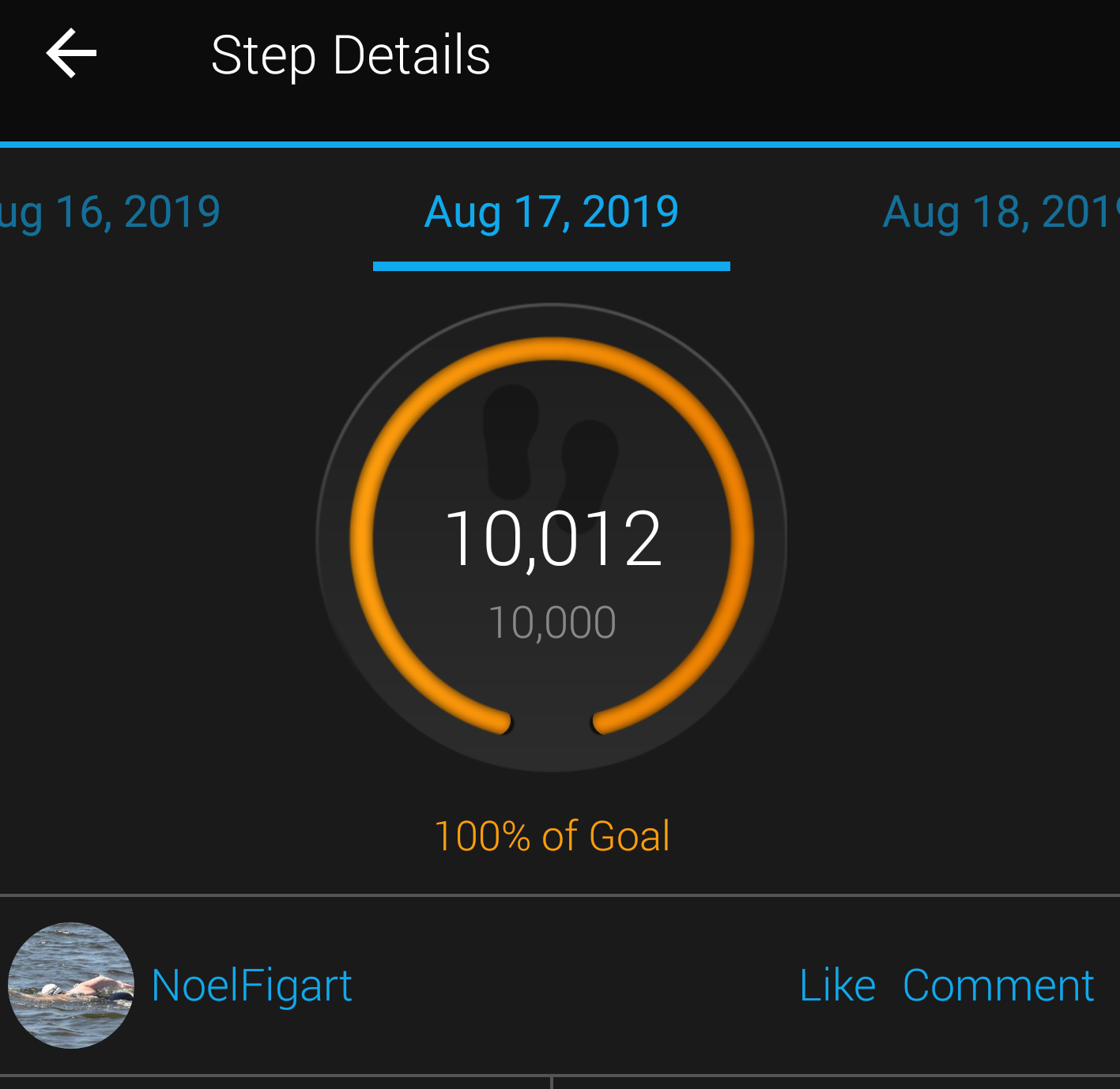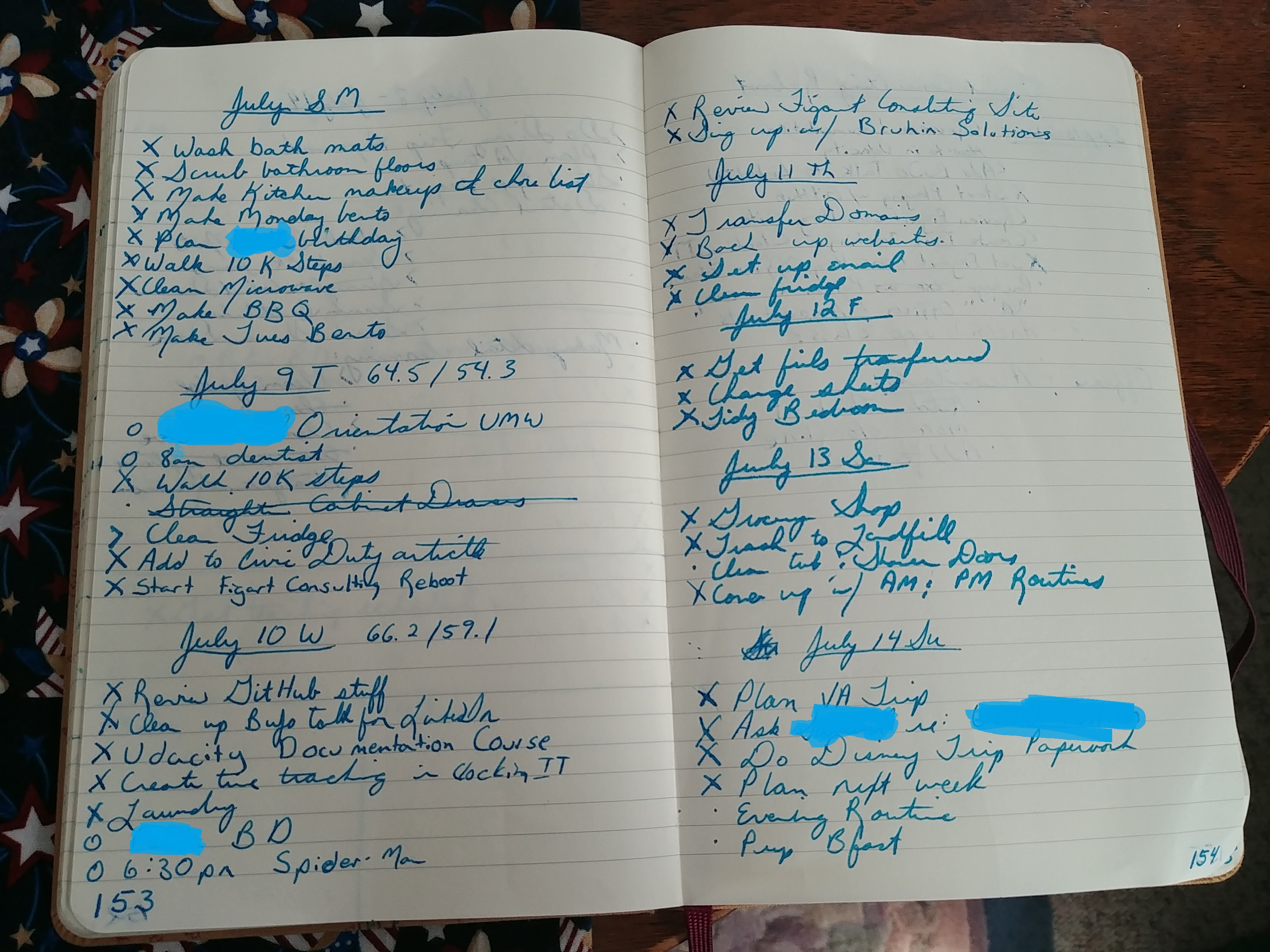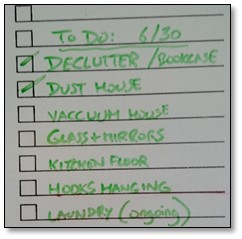In my Endless Quest for Tidiness, which is mostly analysis
and musing these days, as my home is absolutely tidy enough, I noticed a
habit of my mother’s in much sharper relief than usual.
She puts things away.
I know, duh! Putting
things away makes things tidy, right?
However, it’s more subtle than I thought.
I noticed it on vacation, of all places. Mom and Dad like to take a morning walk, and
I’d volunteered to get breakfast for the family while they were doing so that
week. My husband loves to get out in the
evenings when we’re at the beach, so I figured our Daily Walk (yes, we care
about that, too) would be a good thing to do in the evenings after dinner.
Before Mom goes to bed, she likes everything to be put away. For instance, in the kitchen dishwasher emptied
of clean dishes, dish drainer empty of dishes that have dried after dinner. She did this while my husband and I were on
our walk.
Now, I wake at first light most days, call it twenty minutes
or so before sunrise. In real life, I might
roll over to sleep some more, but I don’t at the beach. I like to watch the sun rising over the
ocean. It’s one of my favorite sights in
the whole world!
Walking into the kitchen to make a cup of coffee in preparation
for my Morning Ritual was really nice. Everything
was neat and clear and calm, and it just made me feel good.
After coming home from our vacation, I decided I wanted to
try that out in my own life. I told
myself if it was a burden or I couldn’t make it stick, I’d go back to my “never
more than fifteen minutes of messy” style.
It’s certainly tidy enough and no big deal, so it wasn’t like I’d have
this pressure and feel like I failed if I decided I didn’t want to keep it up.
I found out something.
I most emphatically do want to keep it up.
Putting things away every night reduces chances for accidents and property
damage
I have a young cat.
Mr. Tumnus gets into things all the time, as he’s still a very curious
and active little fellow. When I put
things away, the cat doesn’t get into my knitting and scatter my yarn and
project all over the living room.
Making sure I put away my evening cup of tea ensures that when
I get my morning coffee, I’m not risking a spill by my writin’ chair removing the
empty cup from the coaster and replacing it with the mug of hot coffee. I’ve spilled coffee on more than one knitting
project from this little dance of switcheroo.
When I put things away every night, my kitchen stays tidy.
Washing a pot or pan after a meal and always having a
dishwasher ready for the things that can be machine washed is easy. Unless you’re stressed to the point of needing
medical care (and no shame about that, it happens to all of us) rinsing out a
cereal bowl just isn’t overwhelming.
Since we tend to pile mail on the kitchen counter, I also
note that in tidying the kitchen every night, I’m loathe to leave mail piled on
the counter. It goes in the recycling,
shredder, or is dealt with immediately.
Waking up to tidy spaces helps with mental clarity and creativity
Now, I’ve been keeping my room relatively neat for a long
time. But, there would be times when it would get very cluttered. Maybe I’d been slow to put laundry away. Maybe I had a bunch of books I’d been reading
all over the place (less common now that I read electronically). Maybe I’d dropped yesterday’s clothing on the
floor rather than putting it in the dirty clothes hamper properly. Maybe I was in the middle of a sewing project
and was leaving everything out until I had completed the garment. It was never a big deal. Again, never more
than fifteen minutes of messy, so if I took fifteen minutes on my housework day
to tidy the room, it was easily brought back to rights.
I’m in the middle of sewing a dress right now. Just for giggles, and to continue the experiment
that I thought I might drop, I put all my equipment away after completing what
I’d intended to do on it.
For me, I realized that it is easier for me to think calmly
about the project, to take it appropriately slowly when I am not eager to be
done so my daggone room isn’t really cluttered from all the paraphernalia from
the project. Being less likely to rush
means a better quality project that I’m happier with.
Tidying every night reduces work
Back when I lived in a really cluttered home, that sounded crazy. Yes, yes, yes, I grew up in a tidy home, but
tidying my room was always this big daggone production. Surely the tidy spend all their time cleaning
and tidying, right?
Not even close.
I spent four and a half hours sewing on my new dress
yesterday. Putting away all my sewing
stuff took 00:02.38. Yes, less than three
minutes! Yes, I timed it. Yes, I have space to put my stuff away easily
because I’d Konmaried my home about four years ago. So, I guess Ms. Kondo was right about the
whole tidy forever thing. *wrygrin* It’s
just that “tidy” is still a dynamic process.
Which makes sense. One’s home is
a dynamic process, or it should be. You do work, you get things messy, you put
things away. We all do it. It’s just that making the cycle more rapid makes
things easier.
Friends, if you take a look at home much time I spend
writing, knitting, working, playing video games, working out, or sewing, any
one of those items will take more time in a week than I spend on cleaning by at
a minimum of a factor of two.
So, yes, I am going to keep the practice (which I hope to
develop into a habit) of putting everything away and “rebooting” my house every
night.
Why?
I have better things to do than tidy all the time.











 Yes. Yes, it is.
Yes. Yes, it is.